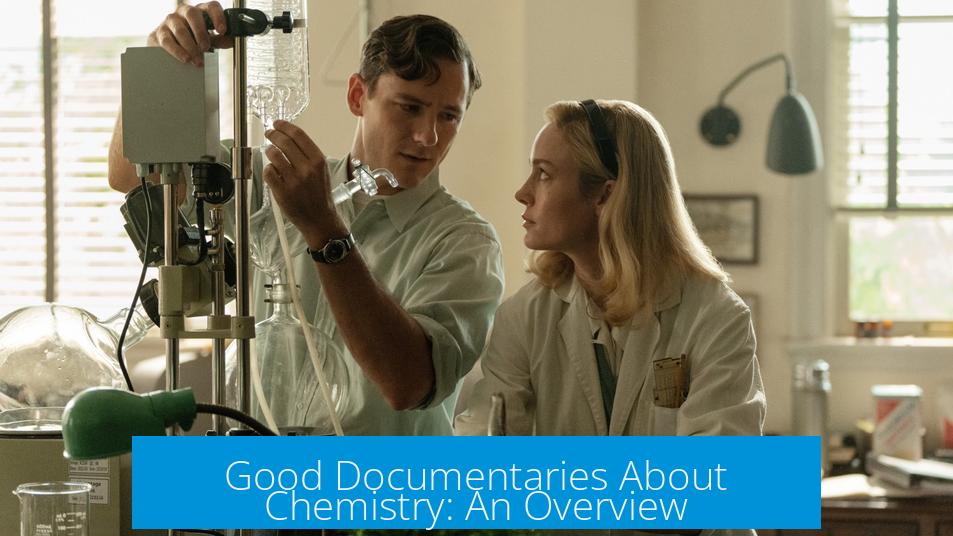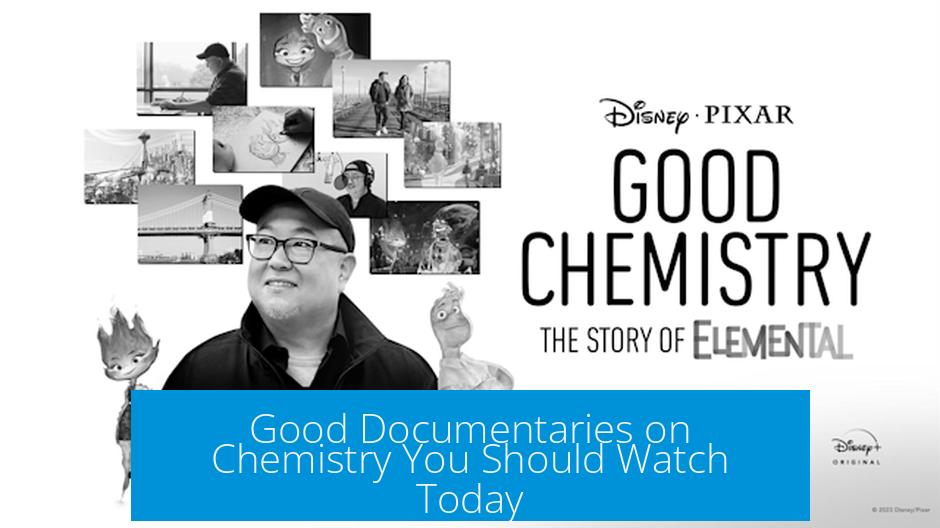Good Documentaries About Chemistry: An Overview

Several acclaimed documentaries offer insightful explorations of chemistry, its history, and impact. Among them, Chemistry: A Volatile History (BBC 4, 2010) stands out as one of the best. This three-part series provides a detailed, engaging look at chemistry’s development. Many educators regularly use it as a teaching tool.
“Chemistry: A Volatile History” (BBC 4)
This documentary traces the history of chemistry from its alchemical roots to modern times. It presents the stories of key scientists and their discoveries with depth and clarity. The series focuses on fewer topics but delivers extensive detail and character insights.
- Renowned for its narrative and historical detail.
- Explores fundamental concepts and their evolution.
- Highly recommended for students and enthusiasts.
Some viewers wish for even more in-depth coverage of individual elements. However, this remains one of the most comprehensive chemistry histories available on film.
“The Mystery of Matter” (PBS, 2015)
Another notable documentary, The Mystery of Matter, takes a slightly different approach. It highlights major discoveries with dramatized reenactments. These scenes use native speakers who speak English with period-appropriate accents, helping to immerse viewers. The documentary exhibits a distinct American academic style.
- Focused on detailed storytelling of key breakthroughs.
- Less focused on breadth, but rich in character development.
- Broader international perspective, less UK-centric than BBC’s series.
This documentary is strong on narrative detail and is praised for making the history of chemistry accessible and compelling.
Additional Recommended Chemistry Documentaries and Series
Aside from the two major documentaries mentioned, various series and episodes cover chemistry topics effectively:
| Title/Series | Platform | Focus | Notes |
|---|---|---|---|
| Absolute Zero | PBS/YouTube | Cryogenics and low-temperature physics | Available free on YouTube |
| Periodic Table of Videos | YouTube | Individual elements and their stories | Accessible and educational, covers element discovery and trivia |
| Crash Course Chemistry (Episodes) | YouTube | General chemistry concepts | Engaging and concise educational series |
| How It Works | BBC 4 | Ceramics, metals, plastics chemistry and history | 3-part mini-series with broad industrial chemistry focus |
| NOVA and Horizon | PBS/BBC | Various scientific topics including chemistry | Episodes on elements, forensic chemistry, and material sciences |
| Modern Marvels, How It’s Made | History/Science Channels | Applied chemistry in everyday products | Shows on plastics, batteries, fireworks, cosmetics, etc. |
| Look Around You | Online (Vimeo) | Scientific concepts with humor | Multiple short videos combining learning and entertainment |
Notable Mentions
- “Dirty Pictures”: Documentary about Alexander Shulgin, the chemist known for psychoactive compounds.
- PBS NOVA “Hunting Elements”: Explores challenges in discovering and isolating elements.
Why These Documentaries Are Valuable
These documentaries combine scientific accuracy with engaging storytelling. They use historical reenactments, interviews with experts, and well-crafted narratives to bring chemistry alive for audiences.
The BBC’s Chemistry: A Volatile History and PBS’s The Mystery of Matter stand out for their depth and production quality. They focus on the human stories behind scientific advances, making chemistry relatable and intriguing.
YouTube series like Periodic Table of Videos and Crash Course Chemistry offer ongoing, accessible learning opportunities, ideal for students and those seeking quick, reliable explanations.
Availability and Accessibility
Many of these documentaries and series are freely available on platforms like YouTube or through public broadcaster websites. The absence of region restrictions for some titles makes them easy to access worldwide.
Specialized series from the BBC, PBS, or science channels often require subscriptions or may be available through educational institutions. Checking official broadcaster websites or educational resource portals is advised.
Key Takeaways
- Chemistry: A Volatile History (BBC 4) is one of the best detailed histories of chemistry available.
- The Mystery of Matter (PBS) presents chemistry through rich historical reenactments and character stories.
- YouTube offers excellent supplementary content like Periodic Table of Videos and Crash Course Chemistry.
- BBC’s How It Works and shows such as NOVA and Modern Marvels cover applied chemistry topics well.
- Many documentaries are openly accessible online, useful for both educators and casual learners.
What is the best documentary to start with for learning about chemistry?
“Chemistry: A Volatile History” by BBC 4 is highly recommended. It is a 3-part series that covers chemistry history with detailed stories and characters.
How does “The Mystery of Matter” compare to “Chemistry: A Volatile History”?
“The Mystery of Matter” (PBS, 2015) focuses on fewer topics but offers more detailed reenactments and character depth. It’s less centered on Britain but still covers key contributors.
Are there any chemistry documentaries available for free online?
Yes. “PBS: Absolute Zero” is available on YouTube. Also, the “Periodic Table of Videos” and the “Crash Course Chemistry” series offer free educational content on YouTube.
Which series cover practical or everyday chemistry topics?
BBC 4’s “How It Works” explores ceramics, metals, and plastics. Shows like “Modern Marvels” and “How It’s Made” also cover chemistry behind everyday items like cosmetics, solar panels, and fireworks.
Are there any chemistry documentaries focusing on specific scientists or niche topics?
Yes. The documentary “Dirty Pictures” covers Alexander Shulgin’s work. The “Look Around You” series offers various fun and informative videos on chemistry topics.





Leave a Comment